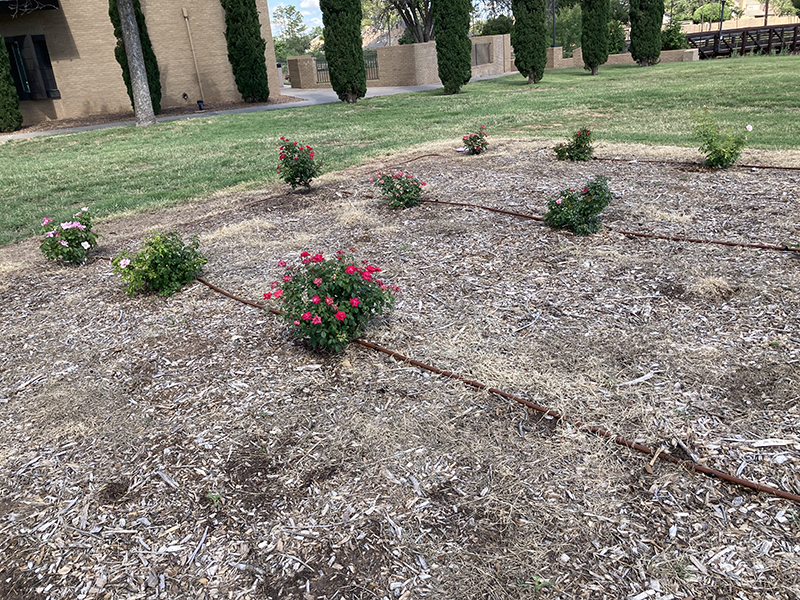 by Jeff Floyd, MC grounds supervisor
Midland College is part of a special research project developed by the American Rose
Trials for Sustainability (A.R.T.S.) The trial garden is located on the west side
of the Dollye Neal Chapel on the main Midland College campus.
The research consists of twenty different varieties submitted by American and Canadian
rose growers. To mimic the toughest growing conditions, they’ll be grown maintenance-free
and without the use of fertilizers or pesticides. Those roses that perform exceptionally
well during the two-year trial may go on to gain national recognition.
During the trial Midland College grounds crews will be on the lookout for at least
one nasty disease that is notorious for killing roses. That pathogen, known as the
Rose rosette virus, has been spotted in Midland—almost as far west as the virus has
spread in Texas. There is no cure. Once a bush is infected, its demise is simply
a matter of time.
Rose rosette is spread from rose to rose by hitching a ride in a microscopic mite.
Mites are not insects; they are closely related to spiders. When a tiny mite sucks
the juices from a plant leaf, it also releases some of its saliva in the plant. Not
all mites carry the virus; however, those that do pose a serious risk to roses.
The virus tends to infect bushes that are close together. The mites move readily.
They have a fascinating way of traveling. As the wind reaches just the right speed,
the tiny little creatures climb onto the end of a leaf, raise their front legs and
are swept away. Who knows why! The point is they don’t seem to have any trouble
moving.
To deal with an infected rose, the solution is to remove the plant. That has to be
done very carefully because the mites also travel on garden tools, clothes and even
on insects and animals. Carelessly digging up an infected rose is certain to place
nearby bushes at risk. The best way to remove a sick rose from the garden is to cautiously
cover it with a large trash bag and dig up the entire pant and root system.
Fortunately, the roses that were received for the Midland College A.R.T.S. trial were
inspected prior to shipment, but they will be closely watched for signs of the virus,
nevertheless.
The next time you find yourself out for an evening stroll enjoying the campus, stop
and smell the roses. You won’t be disappointed.
|
